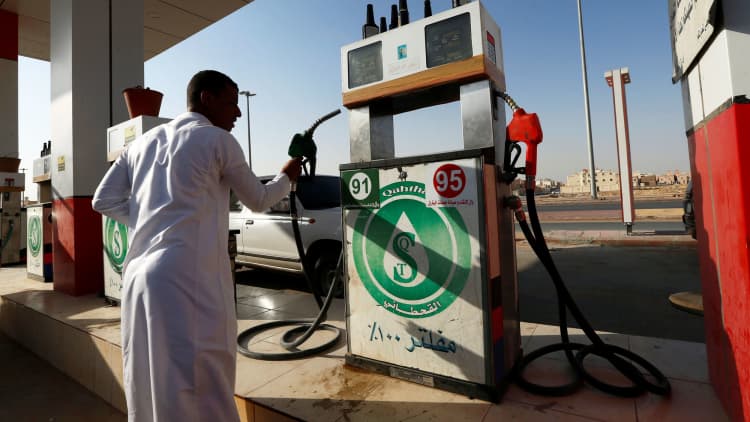For those who had not been paying attention to the rise of Saudi Arabia's Crown Prince Mohammed bin Salman, his recent dramatic detention of fellow princes and other senior figures over corruption allegations came out of the blue.
But amid some pretty tough competition for the world's attention — a quasi-coup in Zimbabwe, more Brexit tumult — he has kept up the momentum ever since. On Thursday it emerged that the Saudi authorities were seeking vast sums — up to $300bn — in exchange for dropping charges relating to the alleged $100bn corruption racket.
It is against that background that two people close to the situation confirm the existence of deepening but secret talks between the Saudi government and the Swiss banking sector. Precise information about the whys and wherefores is scant. But there are several plausible reasons for the contact.
More from the Financial Times:
Angela Merkel faces political crisis after coalition talks break down
Rosneft deal boosts Russia-China relationship
War veterans ramp up pressure on Mugabe after his defiant speech
The most obvious relates directly to the corruption probe. As Prince Mohammed, or MbS as he is widely known, consolidates his power base, he is keen to ensure those he seeks to weaken cannot skirt his crackdown through offshore routes. If MbS is indeed asking the Swiss banks for information on Saudi clients, it is far from certain that the pitch could succeed.
The US authorities did strong-arm Swiss banks into handing over client information — and extracted $5.5bn in penalties and compensation over the affair — but only because clients had breached US tax rules requiring the disclosure of offshore accounts. Saudi Arabia, which levies no taxes, could not use similar grounds as leverage.
The Saudis are already in contact with the likes of Credit Suisse and UBS in relation to the prospective flotation of national oil group Saudi Aramco. Two of the four shortlisted locations for Aramco's listing are in Asia (Hong Kong and Tokyo), where the Swiss banks have dominant operations, particularly with the region's ultra-rich.
But a third possible Swiss connection is that the Saudis are potential investors in the country, and specifically in Credit Suisse. This is part of the flipside of the Aramco story. The kingdom is keen to diversify its investment exposures away from oil. And the forecast proceeds of up to $100bn from Aramco's float would fund a fair few alternative investments.

Two people close to the situation say the Saudis are among a number of sovereign wealth funds intrigued by recent shareholder developments at Credit Suisse. Last month the Financial Times revealed that an activist Swiss hedge fund, called RBR, had acquired a small stake and was calling for a three-way break-up of the group.
A fortnight ago RBR founder Rudolf Bohli met Credit Suisse chief executive Tidjane Thiam to discuss his plans. Mr Bohli, who told the former McKinsey consultant he wanted to see more ambitious cost-cutting, has stressed his desire to work collaboratively with management. However, he has also held talks with a long list of other investors, encouraging them to join his campaign.
It is unclear whether the Saudis, or another large investor, plan to pursue the idea. One person said the Saudis were toying with investing between $500m and $1bn in Credit Suisse — enough to buy a 2.4 per cent stake. If they pressed ahead, it would make for a fascinating dynamic at the top of Credit Suisse's shareholder register.
Qatar Holding is one of the bank's current top shareholders, although a person close to the bank recently suggested the holding may have been restructured through derivatives to release cash. Qatar has been under pressure for months, after Saudi Arabia and some allies imposed sanctions on the emirate over its allegedly soft line on terrorism.
One Saudi official said it was conceivable that the two countries could invest in the same bank, despite their differences. Private Saudi group Olayan is already a leading Credit Suisse investor. The official dismissed the idea that the Saudis would seek to buy out the Qataris, not least because Qatar would be loath crystallise a loss.
Credit Suisse's share price has recovered a little in recent months, amid tentative evidence of Mr Thiam's restructuring, but the shares are still languishing at barely a quarter of the price at which Qatar first bought into the bank in 2008. For Saudi Arabia, though, acquiring stock at current prices — especially if the RBR initiative can bolster the nascent re-rating — could prove a better bet. For Qatar, already hurt by the sanctions, that would add insult to injury.

